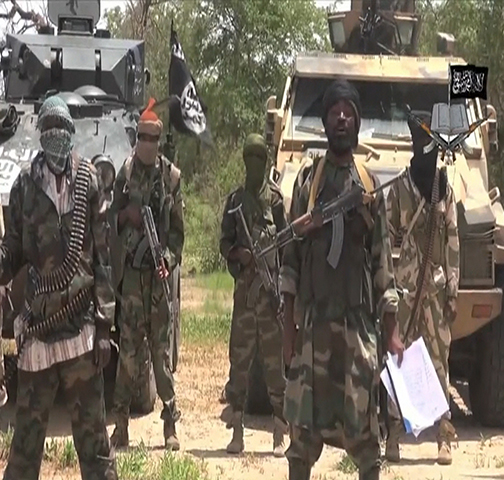The U.S. and the U.K. have praised Nigeria for its efforts to fight terrorism after the country’s security forces foiled a planned Boko Haram attack on the U.K. and U.S. Embassies in the federal capital of Abuja.
Nigeria’s Department of State Services (DSS) said it had arrested five members of the Islamist militant group in Benue state in the country’s Middle Belt region in March, according to Reuters.
“The group had perfected plans to attack the U.K. and American Embassies and other western interests in Abuja,” the DSS said in a statement, adding that another Boko Harammember arrested in Yobe, in the country’s northeast, had given further details about the plan.
Russell Brooks, a spokesperson for the U.S. Embassy in Abuja told Newsweek: “The U.S. Embassy appreciates the work of DSS and Nigerian security forces in fighting terrorism and keeping citizens and residents safe.
“Nigeria and the U.S. continue to have a strong partnership in countering violent extremism.”
The U.K. Embassy in Abuja has not yet responded to a request for comment on the foiled attack. However, a spokesperson for the UK’s Foreign Office issued a statement praising Nigerian security forces.
“We are grateful for the support we receive from the Nigerian security authorities in protecting U.K. diplomatic staff and premises in Nigeria. We are in regular contact with the Nigerian security authorities concerning potential threats to U.K. interests in Nigeria,” the statement said.
Boko Haram—blamed for the death of at least 20,000 people in Nigeria and neighboring countries—targets primarily states in northeastern Nigeria.
However, the group has carried out attacks in the capital, Abuja, in the center of the country. In October 2015, it claimed responsibility for a series of blasts that left at least 18 people dead in Abuja.
In 2011, Boko Haram carried out an attack at the Abuja U.N. headquarters, killing at least 21 people.
The DSS’ statement on the foiled attack comes despite President Muhammadu Buhari saying on several occasions that Boko Haram was finished as a fighting force. But the militant group has carried out several attacks in the past few weeks.
“Boko Haram factions are competing for targets to show who is in charge,” David Otto, counterterrorism expert at U.K.-based TGS Intelligence Consultants, told Newsweek.
“Western embassies are high valued targets and great PR for the fairly new ISIS-West Africa leader, Abu Musab Al-Barnawi, who has not carried out any significant attacks against Western targets since his appointment,” Otto added.
“Other factions have been busy carrying out local attacks. This type of attack reminds us of the U.N. Abuja bomb which was specifically a message that Boko Haram is not a local terrorist organization.”















